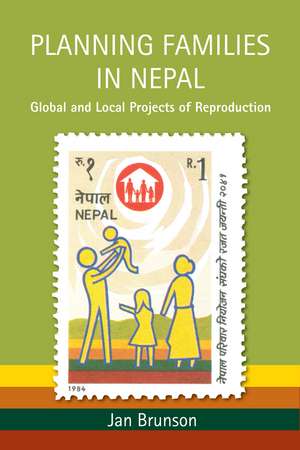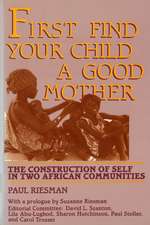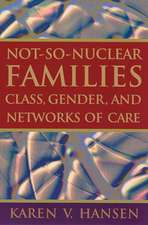Planning Families in Nepal: Global and Local Projects of Reproduction
Autor Jan Brunsonen Limba Engleză Paperback – 28 mar 2016 – vârsta ani
Based on almost a decade of research in the Kathmandu Valley, Planning Families in Nepal offers a compelling account of Hindu Nepali women as they face conflicting global and local ideals regarding family planning.
Promoting a two-child norm, global family planning programs have disseminated the slogan, “A small family is a happy family,” throughout the global South. Jan Brunson examines how two generations of Hindu Nepali women negotiate this global message of a two-child family and a more local need to produce a son. Brunson explains that while women did not prefer sons to daughters, they recognized that in the dominant patrilocal family system, their daughters would eventually marry and be lost to other households. As a result, despite recent increases in educational and career opportunities for daughters, mothers still hoped for a son who would bring a daughter-in-law into the family and care for his aging parents. Mothers worried about whether their modern, rebellious sons would fulfill their filial duties, but ultimately those sons demonstrated an enduring commitment to living with their aging parents. In the context of rapid social change related to national politics as well as globalization—a constant influx of new music, clothes, gadgets, and even governments—the sons viewed the multigenerational family as a refuge.
Throughout Planning Families in Nepal, Brunson raises important questions about the notion of “planning” when applied to family formation, arguing that reproduction is better understood as a set of local and global ideals that involve actors with desires and actions with constraints, wrought with delays, stalling, and improvisation.
| Toate formatele și edițiile | Preț | Express |
|---|---|---|
| Paperback (1) | 275.82 lei 6-8 săpt. | |
| Rutgers University Press – 28 mar 2016 | 275.82 lei 6-8 săpt. | |
| Hardback (1) | 824.18 lei 6-8 săpt. | |
| Rutgers University Press – 29 mar 2016 | 824.18 lei 6-8 săpt. |
Preț: 275.82 lei
Nou
Puncte Express: 414
Preț estimativ în valută:
52.78€ • 55.10$ • 43.68£
52.78€ • 55.10$ • 43.68£
Carte tipărită la comandă
Livrare economică 05-19 aprilie
Preluare comenzi: 021 569.72.76
Specificații
ISBN-13: 9780813578613
ISBN-10: 0813578612
Pagini: 168
Ilustrații: 11 figures, 1 table
Dimensiuni: 152 x 229 x 10 mm
Greutate: 0.23 kg
Ediția:None
Editura: Rutgers University Press
Colecția Rutgers University Press
ISBN-10: 0813578612
Pagini: 168
Ilustrații: 11 figures, 1 table
Dimensiuni: 152 x 229 x 10 mm
Greutate: 0.23 kg
Ediția:None
Editura: Rutgers University Press
Colecția Rutgers University Press
Notă biografică
JAN BRUNSON is an associate professor of anthropology at the University of Hawaii at Manoa, in Honolulu.
Cuprins
Acknowledgments
Note on Transliteration, Transcription, and Pronunciation
Introduction: Life in Motion
1 Intersections: Gender, Class, and Caste in Nepal
2 Like a Potter’s Wheel: From Daughters to Mothers-in-Law
3 The Elusive Small, Happy Family
4 Son Preference and the Preferences of Sons
5 Conclusion: Projects of Reproduction
Appendix A: Caste Hierarchy in Nepal
Appendix B: Trends in Contraceptive Use in Nepal
Notes
Bibliography
Index
Recenzii
"An insightful and beautifully written account of how family planning decisions are made and preferences are formed among Hindu Nepali women … This is an outstanding ethnography of caste-Hindu people living in Kathmandu today, written from the perspective of [a] demographic anthropologist. It will not disappoint scholars and students of this region and subject, and would make an excellent addition to a reading list for upper-level undergraduate or graduate-level teaching."
"Jan Brunson skillfully weaves keen ethnographic observation with incisive social scientific analysis to provide a sensitive and nuanced account of gender and reproduction in an increasingly globalized Nepal."
Descriere
Based on almost a decade of research in the Kathmandu Valley, Planning Families in Nepal offers a compelling account of Hindu Nepali women as they face conflicting global and local ideals regarding family planning. By examining family life as it unfolds over time, Jan Brunson delivers a fresh perspective on discussions of contraception, son preference, the joint family, and the inability of the concept “planning” to accurately describe conception and reproduction in a patrilocal family system.













